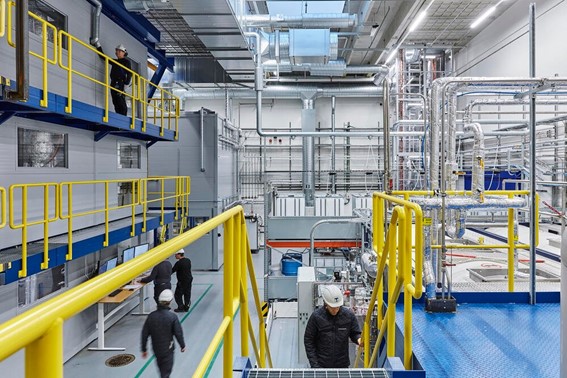Braskem and Haldor Topsoe start production of biobased MEG at their demo plant in Lyngby
Type of post: NEWS IN BRIEF.
Braskem and Haldor Topsoe have achieved their first-ever demo-scale production of biobased monoethylene glycol (MEG) in Lyngby (Denmark), confirming potential for large-scale production using the MOSAIK™ technology.
Press release: “Braskem and Haldor Topsoe achieve first production of bio-based MEG from sugar”, 24/11/2020.
Related posts:
- “Braskem and Haldor Topsoe to validate new bio-MEG production process in a demo plant”, 13/11/2017.
- “Braskem and Haldor Topsoe commission their bio-MEG demo plant”, 19/02/2019.
Figure 1. Braskem and Haldor Topsoe start production of biobased MEG at their demo plant in Lyngby (taken from the press release)
The unit was started up in 2019 with the primary goal to demonstrate all key design features of the technology that transforms sugar into renewable MEG. Since then, the remaining process units of the plant have been built and put into operation, and the production process has been optimized. MEG is a raw material for PET (polyethylene terephthalate), which has numerous applications and is an essential feedstock in sectors such as textiles and packaging, especially beverage bottles. Currently, MEG is predominantly made from fossil-based feedstocks, such as naphtha, gas, or coal.
The technology will also co-produce, in a lower quantity, monopropylene glycol (MPG), which has a wide variety of applications ranging from unsaturated polyester resins (UPR), commonly used in construction materials, to cosmetic products.
The next phase will involve providing samples to strategic partners for testing and validation. The results of the demonstration plant operations and the validation of products will be essential for the decision to deploy the technology on a commercial scale.





